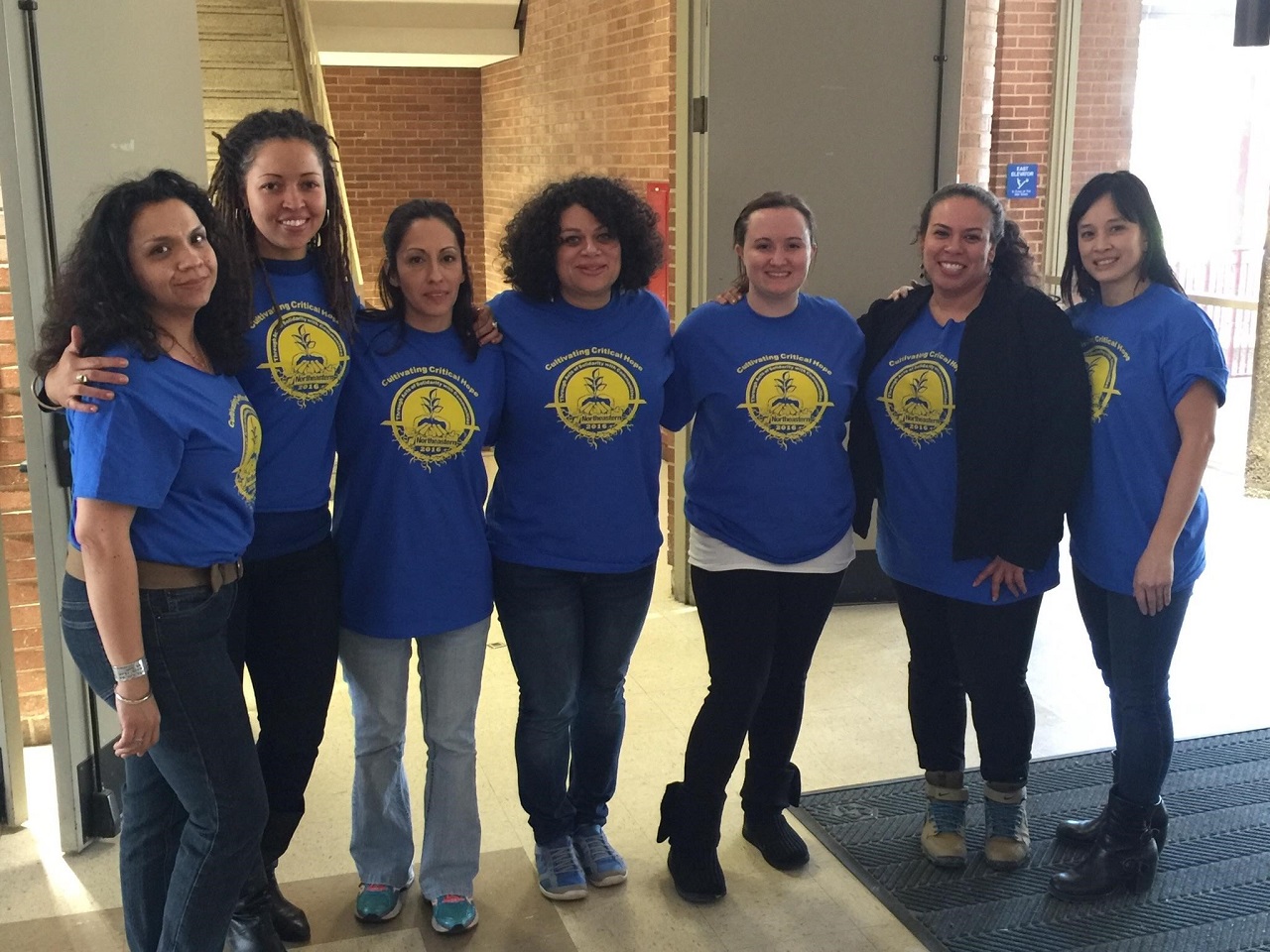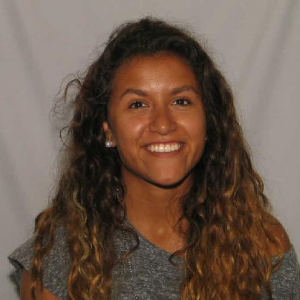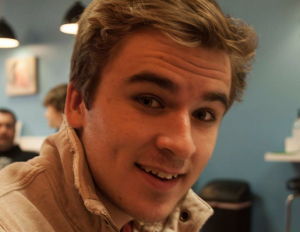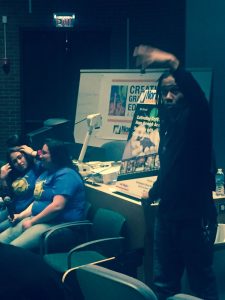The Chicago Teacher Education Pipeline (CTEP) is grounded in social justice and works to cultivate and sustain innovative, resilient, and effective educators for urban schools and their communities.
Our work at CTEP is situated in communities, which are valued as critical partners to our work of preparing Illinois State University pre-service teachers with the necessary tools for success. Together, we have developed formal partnerships with community-based organizations in our five target communities. These partners work with us to identify community assets and scholars that aid in the development of our Illinois State pre-service teachers.
On April 2, a student forum entitled Cultivating Critical Hope through Acts of Solidarity with Communities was held at Northeastern Illinois University. The forum was developed and led by a collaborative team of faculty from various Illinois colleges of education. Also contributing to the planning were grassroots community organizations and family advocate groups. The planning team focused on how we “…can leverage university resources to build and contribute to community educational efforts; facilitate awareness, respect, appreciation and collaboration amongst pre/in-service teachers and community activists, organizations, students, parents, and others working toward transformative, justice-centered, liberators, decolonizing education” said Ann Aviles of Northeastern Illinois University.
Two CTEP pre-service teachers in special education, Ana Pyper and Elijah Eiler, who attended the student forum, shared their pre- and post-forum reflections. Pyper explained, “My motivation to attend the forum was to gain more knowledge on how to best create a classroom and school that aims toward social justice, and how to best involve the community in order to create that. I was also motivated to meet other educators in the field with the same social justice leanings as I have.”
Special Education student Eiler said, “Over the last couple of years, I have learned about the intersections of critical theories and educational practices in online spaces and, to a lesser degree, through college coursework. Although I have interacted with others who understand these intersections in online spaces, I have never been in such a group in a physical space. This was particularly intriguing to me as an opportunity to connect with others who have this same perspective and understanding and who do the work that they do in Chicago. I am new to this city and want to connect with others who share a passion for using education as a tool to bring about collective liberation together.”
The morning panelists included education and community leaders from both public and private schools, including Pilar Vasquez-Vialva, principal at Roosevelt High School; Dayo Harris, assistant principal at Village Leadership Academy (VLA); and Silvia Ines Gonzales, teacher at VLA. Community activist Mathilda de Dios of Free Write Arts and Literacy and parent representative Kesh Ross of VLA were also in attendance. The moderator and morning keynote speaker was Ms. Caroline Gaete-Tapia, co-director of Blocks Together.
“One thing that really stood out for me in regards to the panel discussion was that it was a panel of all women of color,” Pyper explained. “It was actually quite an emotional and positive experience for me as a woman of color to see and hear from women who don’t have the same exact set of experiences as me, but have a similar set of their own. The women all had incredible insight into their own communities and the contribution they each have,” she continued.
Eiler said that he enjoyed “hearing from educational professionals who are working to subvert the oppressive practices that run rampant within educational institutions. I have been increasingly turned off to the school system because of these practices, but am empowered in knowing that it is possible to work within this system without perpetuating its harmful tendencies.”
Eiler had attended a break-out workshop presented by a group called Free Write Arts and Literacy, an organization that supports vulnerable youth by facilitating creative writing workshops, one-on-one literacy tutoring, and arts programming for youth incarcerated in the Cook County Juvenile Temporary Detention Center.
“I really enjoyed this session. It helped me begin to imagine other possibilities of how I can do this work outside of school. There was a literacy exercise that I want to do with students,” Eiler said.
The forum was closed by a student panel from Lozano Leadership Academy, an alternative school in Pilsen, and moderated by Dr. David Stovall from the University of Illinois, Chicago.
“The young women demonstrated such courage, wisdom, and eloquence when speaking on their school experiences. Dr. Stovall expertly guided the discussion, and added his own commentary at perfect opportunities during the discussion,” Pyper recalled.
As each panelist spoke, students recounted stories of being pushed out from their schools before they arrived at Lozano Leadership Academy. One student shared how demoralizing and painful it was for her when friends tell her how her former principal used her as an example of a deviant student that her peers should not want to emulate. The students all shared that they had been experiencing hardships at home and needed the adults in their life to understand and support them. Another panelist shared an example of a teacher that often spoke about “social justice” and then in response to her falling asleep in class, decided to pour water on her head in front of her peers. She explained how she had been up all night caring for younger siblings due to a family crisis. This “social justice teacher” then proceeded to verbally attack her and told her “she was the reason her ‘people’ were messed up.”
[This panel] “…brought us down to the core of what education is about: the students. Education is plagued with a teacher-as-authority vs. student-as-subservient dichotomy. It was disheartening to hear the ways in which these students had been turned away from school because I know I will be working with those types of professionals in the future. But it was empowering to hear what brought them back, knowing that I can be an agent of positive change in students’ lives by employing these practices” Eiler reflected.
What does “social justice” in education look like? Where are these educators? How do we fuse community partners and community assets into our everyday curriculum and pedagogy? These are some of the questions our pre-service teachers posed to other participants at the forum and is the praxis of the Chicago Teacher Education Pipeline’s mission “… to cultivate and sustain innovative, resilient, and effective educators for urban schools and their communities.”




